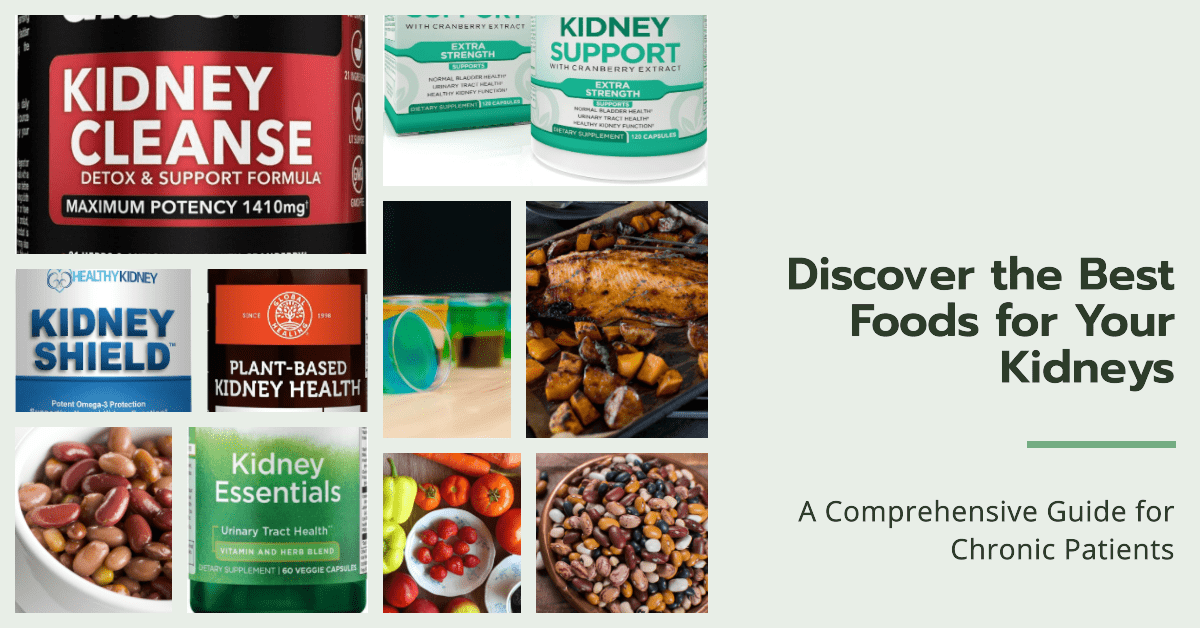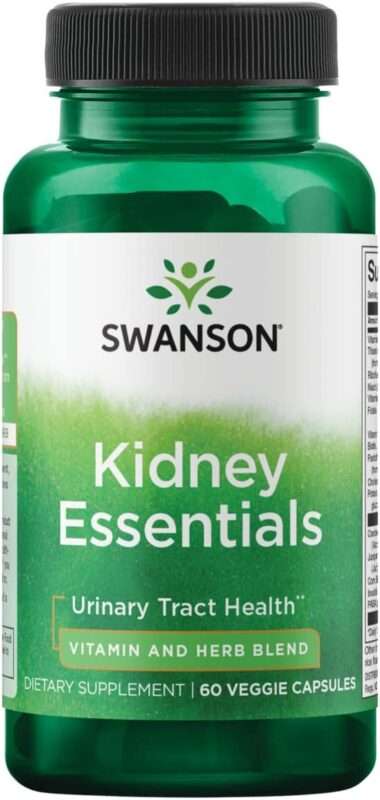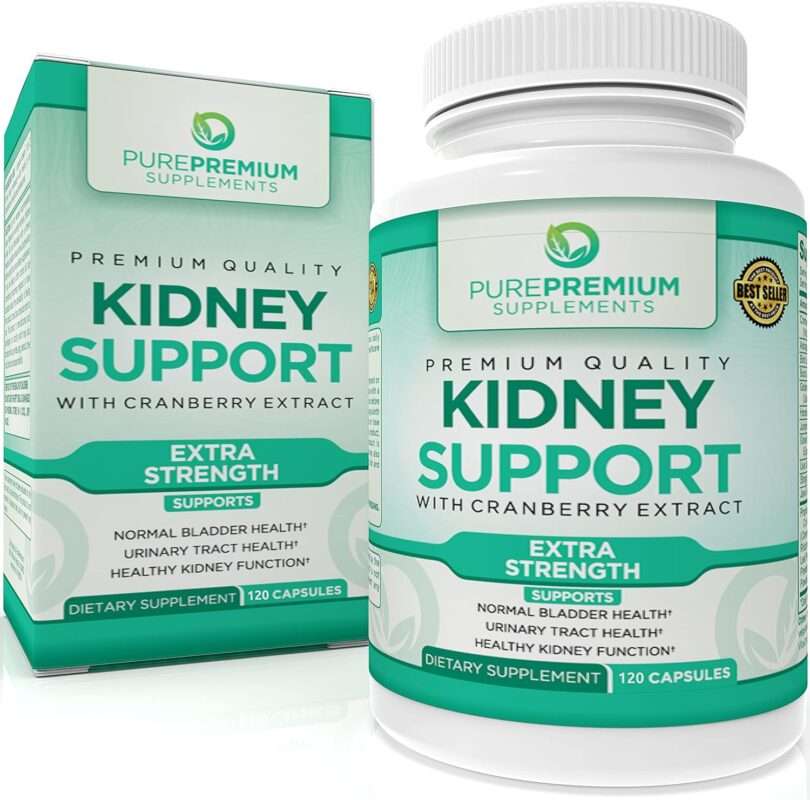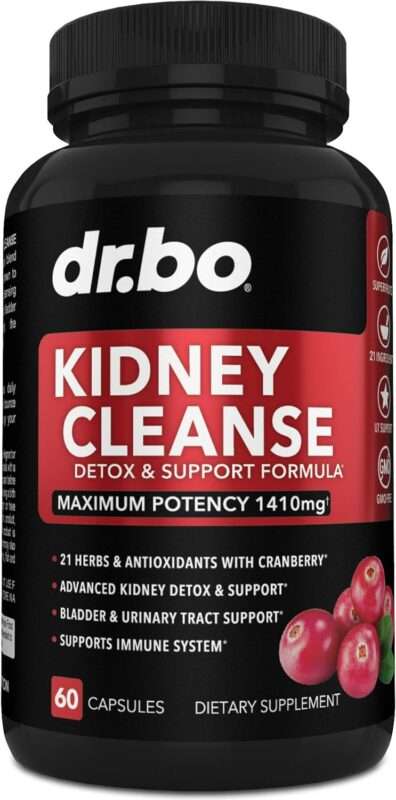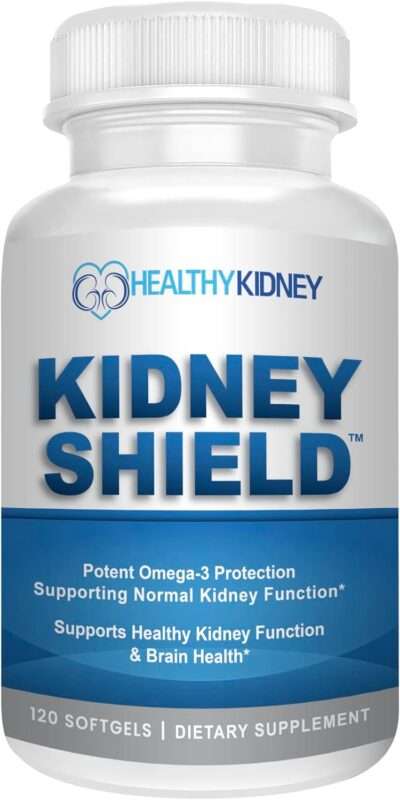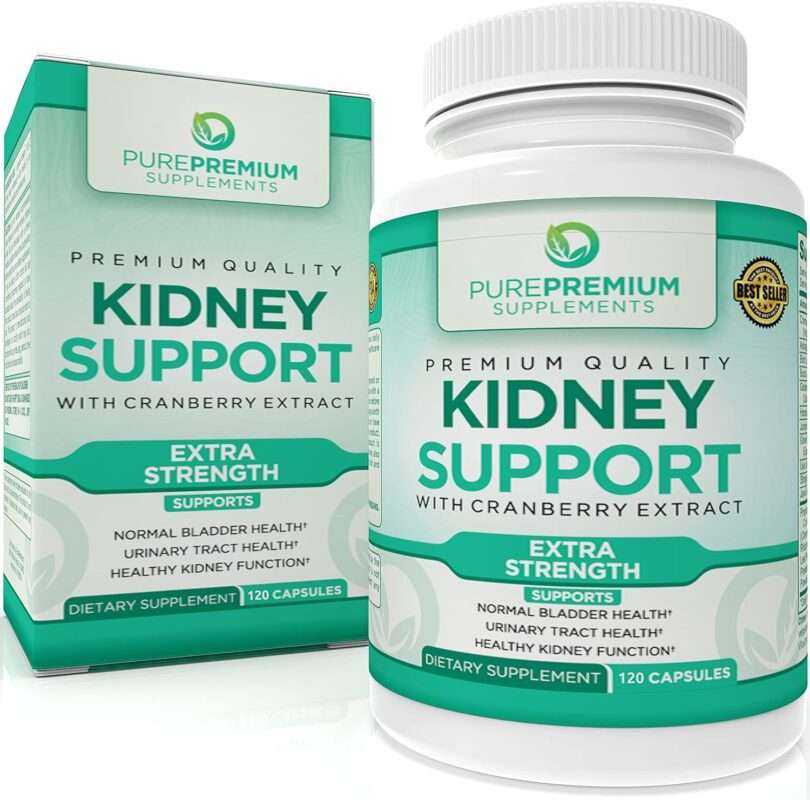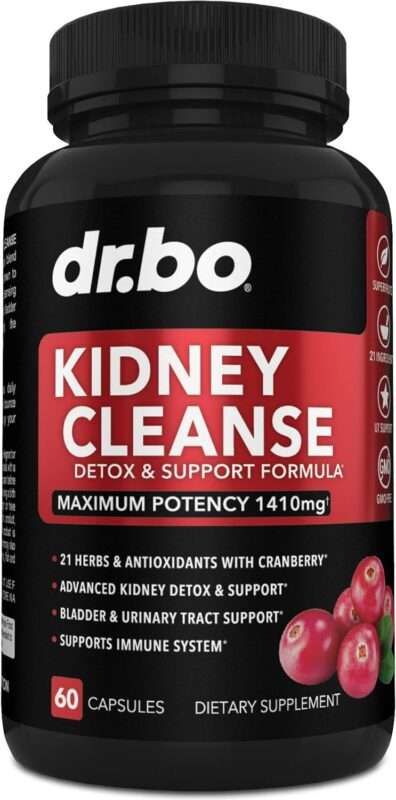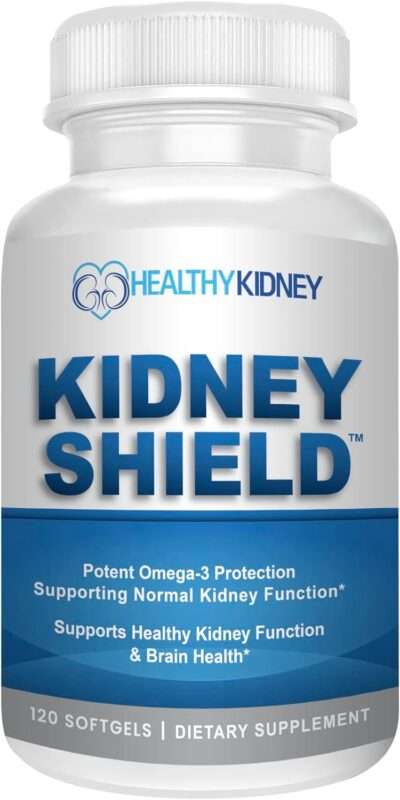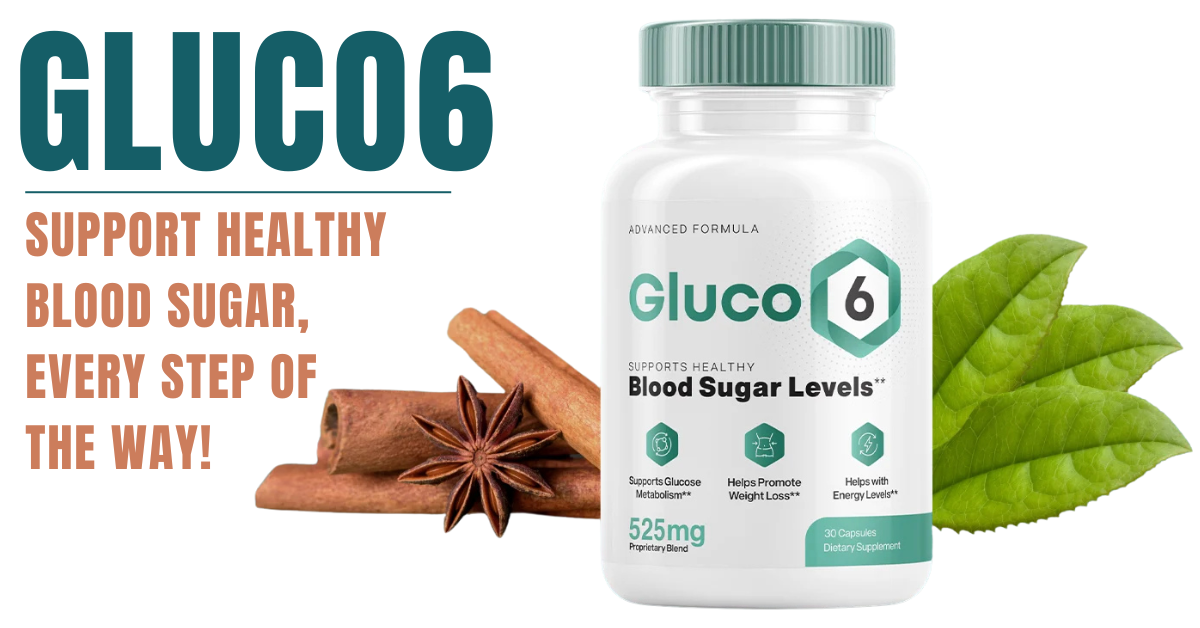Introduction
That’s why this ultimate guide is a must-read. It offers actionable advice, recipes, and lifestyle tips to incorporate these vital foods into your daily regimen. From fruits and vegetables to lean proteins, we delve into the science and practical aspects of each food type. The ultimate goal is to empower you, the chronic patient, to make informed choices that enhance your quality of life.
If you or a loved one is living with chronic kidney disease, finding the right foods to support your kidney health can be a daunting task. From navigating the grocery store aisles to deciphering confusing food labels, it can feel overwhelming.
That’s why we’ve compiled the ultimate guide to kidney-friendly foods for chronic patients. In this comprehensive article, we will explore dietary solutions and provide you with a list of foods that are not only delicious but also beneficial for your kidneys.
So, get ready to discover a world of mouthwatering options that can support your kidney health and improve your overall well-being.
Key Takeaways
- Protein Intake Must Be Moderated: Individuals with kidney disease should focus on high-quality protein sources like lean meats and consult healthcare professionals for personalized dietary guidelines.
- Low-Potassium Fruits and Vegetables: Choose fruits like apples and berries, and vegetables like cauliflower and cucumber, to manage potassium levels effectively.
- Seasoning Choices Matter: Opt for kidney-friendly seasonings such as basil and thyme to add flavor without impacting sodium and potassium levels.
- Beverage Selection: Prioritize low-potassium and low-phosphorus drinks like herbal teas and filtered water, avoiding high-phosphorus beverages like carbonated drinks.
- Meal Planning and Support: Work with healthcare professionals for personalized meal plans and educate family and friends to create a supportive environment for managing kidney health.
Within this ultimate guide, you’ll discover a variety of kidney-friendly foods that are perfect for chronic patients looking to take charge of their health. These aren’t just your run-of-the-mill suggestions but carefully researched options backed by science and endorsed by healthcare professionals.
Chronic patients can gain significantly by adding these foods to their daily meals. As a matter of fact, certain kidney-friendly foods can help to lower blood pressure, reduce inflammation, and even improve kidney function.
Global Healing Plant-Based Kidney Health – Organic Detox Cleanse & Urinary Health Support Liquid Supplement Drops – Flush Toxin Stone Waste For Bladder
The Global Healing Plant-Based Kidney Health Liquid Supplement Drops offer an organic, holistic approach to kidney and urinary tract wellness. Specially formulated with plant-based ingredients, this detox cleanse is designed to flush toxins and stone waste from your system, promoting healthier bladder function. The liquid form allows for quick absorption, getting to work faster than capsules or tablets. It’s an excellent addition to any health regimen aimed at improving urinary tract and kidney health. Check Price on Amazon.
✅ Organic Plant-Based Formula
✅ Supports Urinary Tract Health
✅ Flushes Toxins and Stone Waste
✅ Quick Absorption
✅ Versatile Liquid Form
While this guide isn’t a substitute for professional medical advice, it serves as a comprehensive resource for anyone interested in adopting a more kidney-conscious diet. Throughout this article, we will explore various meal plans, grocery shopping tips, and food preparation techniques—all tailored for chronic patients.
The underlying objective of this ultimate guide is to equip you with the knowledge and tools needed to make smarter food choices. By consistently choosing kidney-friendly foods, you’ll be paving the way for a healthier, happier life.
Understanding Kidney Disease
What is kidney disease?
Kidney disease, also known as renal disease, refers to the condition in which the kidneys are damaged and their ability to function properly is compromised. The kidneys play a crucial role in filtering waste products, excess fluids, and toxins from the bloodstream, as well as maintaining the balance of electrolytes in the body. When kidney disease occurs, these vital functions are impaired, leading to a buildup of waste and fluid in the body, which can cause serious health complications if left untreated.
Types of kidney disease
There are various types of kidney disease, each with its own causes and characteristics. Some common types include:
- Chronic Kidney Disease (CKD): This is a long-term condition where the kidneys gradually lose their function over time. CKD is often caused by conditions like high blood pressure, diabetes, and autoimmune diseases.
- Acute Kidney Injury (AKI): This is a sudden and severe decline in kidney function, usually occurring as a result of conditions like dehydration, infections, or certain medications.
- Polycystic Kidney Disease (PKD): PKD is a genetic disorder characterized by the growth of numerous cysts in the kidneys. Over time, these cysts can cause the kidneys to enlarge and lose their ability to function properly.
- Glomerulonephritis: This refers to inflammation of the glomeruli, which are the tiny blood vessels in the kidneys responsible for filtering waste from the blood. Glomerulonephritis can be a primary condition or occur as a result of another underlying disease.
Causes and risk factors
Kidney disease can have various causes and risk factors, including:
- Diabetes: Uncontrolled high blood sugar levels can damage the blood vessels in the kidneys, leading to kidney disease.
- High blood pressure: Hypertension puts excessive strain on the kidneys, eventually causing damage to the blood vessels and tissues.
- Family history: If you have a family history of kidney disease, you may be at a higher risk of developing the condition.
- Age: The risk of kidney disease increases with age, as the kidneys’ functioning naturally declines over time.
- Smoking: Smoking damages blood vessels and decreases blood flow to the kidneys, increasing the risk of kidney disease.
- Obesity: Excess weight can contribute to the development of various conditions, such as diabetes and high blood pressure, which can then lead to kidney disease.
Symptoms and complications
In the early stages, kidney disease may not cause noticeable symptoms. However, as the condition progresses, common symptoms may include:
- Fatigue and weakness
- Swelling in the legs, ankles, or feet
- Changes in urination patterns, such as increased frequency or decreased output
- Blood in the urine
- Foamy urine
- Persistent itching
- Muscle cramps
- Difficulty concentrating
If left untreated, kidney disease can lead to serious complications, including high blood pressure, heart disease, anemia, bone disease, and kidney failure. It is essential to seek medical attention if you experience any of these symptoms or suspect you may have kidney disease.
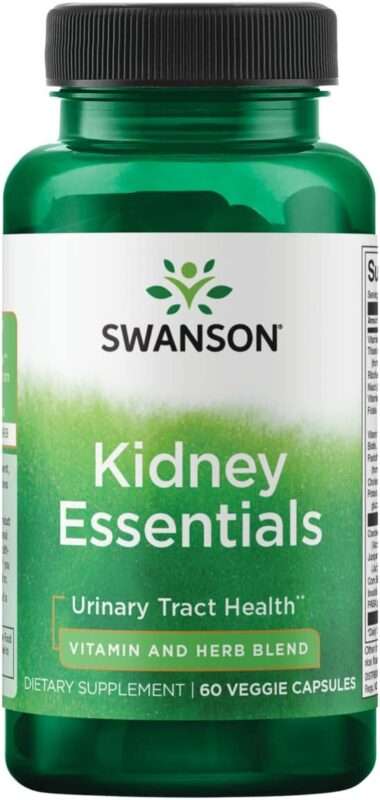
Photo: Amazon
Swanson Kidney Essentials Supplement, Essential Vitamins for Urinary Tract Health, 60 Veggie Capsules
Swanson’s Kidney Essentials Supplement offers a blend of essential vitamins meticulously designed for urinary tract health. Coming in easy-to-swallow veggie capsules, this supplement not only improves your urinary health but also boosts your immune system. It’s a well-balanced formula that has a 60-day supply, offering consistent and sustained benefits. Check Price on Amazon.
✅ Essential Vitamins Blend
✅ Promotes Urinary Tract Health
✅ Easy to Swallow Veggie Capsules
✅ Boosts Immune Function
✅ 60-Day Supply
Importance of a Kidney-Friendly Diet
How diet affects kidney health
Diet plays a crucial role in managing kidney disease. Certain foods and nutrients can directly impact the health of the kidneys, either by supporting their function or by placing additional stress on them. A kidney-friendly diet aims to minimize the strain on the kidneys while providing the necessary nutrients for overall health.
Benefits of a kidney-friendly diet
Adopting a kidney-friendly diet can offer numerous benefits for individuals with kidney disease. Some notable advantages include:
- Slowing down the progression of kidney disease: A well-balanced diet can help manage blood pressure, blood sugar levels, and other underlying conditions that contribute to the progression of kidney disease.
- Reducing protein waste buildup: The kidneys play a vital role in filtering protein waste from the body. By moderating protein intake, a kidney-friendly diet helps lessen the workload on the kidneys and prevents the accumulation of waste products.
- Controlling fluid balance: Kidney disease can disrupt the body’s ability to regulate fluid levels. A kidney-friendly diet helps maintain a proper fluid balance, preventing fluid retention and swelling.
- Managing electrolyte imbalances: Kidney disease can cause imbalances in electrolytes, such as potassium, sodium, and phosphorus. A kidney-friendly diet helps control these electrolyte levels, reducing the risk of complications.
Key nutrients to consider
When following a kidney-friendly diet, it’s important to pay attention to certain key nutrients:
- Protein: While moderation is key, it is still important to consume adequate amounts of high-quality protein to support overall health and prevent muscle wasting. Consult a healthcare professional to determine the appropriate protein intake for your specific condition.
- Sodium: Limiting sodium intake helps manage blood pressure and fluid balance. Avoiding processed foods, canned soups, and fast food can significantly reduce sodium consumption.
- Potassium: For individuals with compromised kidney function, it’s important to monitor potassium intake as high levels can be harmful. Choose low-potassium foods and avoid potassium-rich sources like bananas, oranges, tomatoes, and potatoes.
- Phosphorus: Kidney disease often leads to elevated phosphorus levels in the blood, which can weaken bones and contribute to cardiovascular problems. By avoiding foods high in phosphorus, such as dairy products and processed meats, phosphorus levels can be better controlled.
Choosing the Right Foods
Low-sodium options
Reducing sodium consumption is crucial for individuals with kidney disease, as excessive sodium can lead to fluid retention and high blood pressure. Opt for fresh, whole foods and cook meals from scratch, as this allows you to have better control over sodium content. When seasoning your food, use herbs, spices, and salt alternatives to enhance flavor without adding sodium.
Reducing potassium intake
Monitoring potassium intake is important for individuals with kidney disease, as high potassium levels can disrupt heart rhythm and lead to complications. Choose low-potassium fruits and vegetables, such as apples, strawberries, cucumber, and green beans. Soaking or boiling certain foods can also help reduce their potassium content.
Managing phosphorus levels
Controlling phosphorus intake is crucial, as high levels can weaken bones and contribute to cardiovascular problems. Limit consumption of high-phosphorus foods, such as dairy products, processed meats, and carbonated drinks. Additionally, it’s essential to take phosphate binders as prescribed by your healthcare professional to help control phosphorus absorption.
Limiting fluid retention
Individuals with kidney disease often have difficulty maintaining a proper fluid balance, leading to fluid retention and swelling. To manage fluid intake, it’s important to monitor your thirst levels and limit excessive fluid consumption. Opt for low-fluid foods, such as popsicles and gelatin, to satisfy cravings without consuming excess fluids. Additionally, avoid drinks with high sugar content, as they can worsen fluid retention.
PurePremium Supplements Premium Kidney Support Supplement by PurePremium Supports Urinary Tract and Normal Bladder Health – Cranberry Extract, Astragalus
PurePremium Supplements’ Premium Kidney Support is fortified with cranberry extract, renowned for UTI prevention, and astragalus for enhanced kidney function. Designed with high-quality ingredients, this supplement is committed to supporting normal bladder health and a functioning urinary tract. Its fast-acting formula ensures you get quick relief and long-term benefits. Check Price on Amazon.
✅ Cranberry Extract for UTI Prevention
✅ Supports Normal Bladder Function
✅ Enhanced with Astragalus
✅ Premium Quality Ingredients
✅ Fast-Acting Formul
Protein Choices for Kidney Patients
Understanding protein needs
Protein is a vital nutrient that helps build and repair tissues, support the immune system, and provide energy. However, individuals with kidney disease need to moderate their protein intake to reduce the workload on the kidneys. Consult a healthcare professional or a registered dietitian to determine the appropriate protein intake based on your specific condition and stage of kidney disease.
High-quality protein sources
When consuming protein, it’s important to focus on high-quality sources that provide essential amino acids without excessive waste products. Good sources of high-quality protein include lean meats, poultry, fish, and eggs. These animal-based protein sources are easier for the body to process compared to plant-based proteins.
Plant-based protein options
For individuals who prefer plant-based diets or need to reduce animal protein intake, there are several plant-based protein sources to consider. Legumes like beans, lentils, and chickpeas are rich in protein and can be incorporated into various dishes. Tofu, tempeh, and seitan are also good sources of plant-based protein. However, it’s essential to note that plant-based proteins do not provide the same balance of essential amino acids as animal proteins, so it’s important to combine different protein sources throughout the day to ensure adequate intake of all essential amino acids.
Fruit and Vegetable Recommendations
Low-potassium fruits
Fruits are an important part of a healthy diet, but individuals with kidney disease may need to choose low-potassium options to avoid potassium overload. Some low-potassium fruit options include apples, berries (such as strawberries and blueberries), grapes, and pineapples. These fruits can still provide essential vitamins, minerals, and antioxidants without excessively elevating potassium levels.
Low-potassium vegetables
Similarly, vegetables should be included in a kidney-friendly diet, but it’s important to select low-potassium options. Some low-potassium vegetables include cauliflower, cucumber, green beans, snow peas, and bell peppers. These vegetables can be enjoyed raw, steamed, or lightly sautéed to retain their nutritional value while minimizing potassium intake.
Guidelines for portion sizes
While fruits and vegetables are generally healthy, portion control is crucial for individuals with kidney disease. Consult with a healthcare professional or a registered dietitian to determine appropriate portion sizes based on your specific condition and nutritional needs. Individualized recommendations will depend on factors such as stage of kidney disease, other underlying conditions, and overall dietary requirements.
Herbs, Spices, and Flavor Enhancers
Kidney-friendly seasonings
When following a kidney-friendly diet, herbs, spices, and other flavor enhancers can be used to add taste and variety to your meals without adding unnecessary sodium or potassium. Some kidney-friendly seasonings include basil, thyme, rosemary, oregano, garlic powder, and onion powder. These can be used to enhance the flavors of meats, poultry, vegetables, and soups.
Any Questions🤔?
Reach out to us! We’re here to clarify and prioritize your well-being. 🌟
Salt alternatives
Reducing sodium intake is a key aspect of a kidney-friendly diet, and incorporating salt alternatives can help achieve this goal. Some common salt alternatives include herbs and spices, lemon juice, vinegar, and low-sodium condiments like mustard. Experimenting with different flavor profiles can add excitement to your meals while supporting your kidney health.
Herbs to avoid
While herbs and spices can enhance the flavor of your dishes, it’s important to be aware of herbs that may have adverse effects on kidney health. Herbs like nettle, horsetail, and bearberry can potentially worsen kidney function and should be avoided. Always consult with a healthcare professional or a registered dietitian before incorporating any new herbs or supplements into your diet.
Beverage Choices for Kidney Health
Staying hydrated with limited fluids
Staying hydrated is important for overall health, but individuals with kidney disease may need to limit their fluid intake to manage fluid retention. To stay hydrated within these restrictions, it’s important to prioritize water and other low-fluid beverages. Sip water throughout the day and avoid drinking excessive amounts during meals. Also, consider hydrating foods such as cucumbers, watermelon, and celery, which have high water content.
Low-potassium drink options
To ensure proper potassium management, it’s important to choose low-potassium beverages. Some low-potassium drink options include filtered water, herbal teas, and certain fruit juices with controlled potassium content. However, it’s crucial to read labels carefully and consult with a healthcare professional or a registered dietitian to ensure the chosen beverages align with your individual needs and restrictions.
Avoiding high-phosphorus beverages
Phosphorus control is essential for individuals with kidney disease, as high phosphorus levels can contribute to complications. Avoid beverages that are high in phosphorus, such as carbonated drinks and certain types of sports drinks. Opt for low-phosphorus alternatives like lemonade, herbal tea, or fresh fruit-infused water. Checking labels and considering phosphate binders prescribed by your healthcare professional can further support phosphorus management.
Kidney Cleanse Detox Support Supplement – Natural Cranberry, Juniper Berries, Buchu & Uva Ursi Extract to Help Repair Kidneys, Bladder Control
The Kidney Cleanse Detox Support Supplement is packed with natural extracts like cranberry, juniper berries, buchu, and Uva Ursi that synergistically work to repair kidneys and improve bladder control. Its detoxifying action effectively flushes toxins, providing comprehensive kidney and urinary tract support. This product offers a well-rounded approach to kidney health. Check Price on Amazon.
✅ Rich in Natural Extracts
✅ Promotes Kidney Repair
✅ Enhances Bladder Control
✅ Detoxifying Action
✅ Provides Comprehensive Support
Meal Planning and Preparation
Creating a kidney-friendly meal plan
Meal planning is a helpful strategy for individuals with kidney disease, as it allows for better control over nutrient intake and simplifies the process of grocery shopping and meal preparation. Work with a healthcare professional or a registered dietitian to create a personalized kidney-friendly meal plan that takes into account your specific nutritional needs, taste preferences, and restrictions. This will help ensure you’re consuming the right balance of nutrients while managing your kidney health.
Portion control guidelines
In addition to planning meals, portion control is vital for individuals with kidney disease. Measuring food portions using measuring cups, a food scale, or even visual cues can help ensure you’re consuming appropriate amounts of nutrients while avoiding excessive intake. Working with a registered dietitian can provide guidance and tools for effective portion control.
Meal preparation tips
Meal preparation can make following a kidney-friendly diet more convenient and manageable. Consider batch cooking and freezing meals in portioned containers, so you always have healthy options readily available. Preparing meals in advance also helps minimize the reliance on processed or fast foods, which are often high in sodium and other additives. Investing in kitchen tools like a slow cooker or pressure cooker can also make meal preparation easier and more efficient.
Eating Out: Tips and Tricks
Navigating restaurant menus
Eating out can pose challenges for individuals with kidney disease, as restaurant meals are often high in sodium, phosphorus, and other ingredients that may not align with a kidney-friendly diet. However, there are ways to navigate restaurant menus and make healthier choices. Look for low-sodium options, such as grilled or steamed dishes, and ask for sauces and dressings on the side. Customizing your order and substituting high-potassium sides with low-potassium alternatives can also help create a kidney-friendly meal.
Special requests to make
Don’t be afraid to make special requests when dining out to ensure your meal aligns with your dietary needs. Ask for sauces, dressings, and condiments to be served on the side, so you can control the amount you consume. Request lean cuts of meat and ask for them to be cooked without added salt or seasoning. The kitchen staff is often willing to accommodate special requests, so don’t hesitate to communicate your needs.
Smart choices for kidney patients
When dining out, it can be helpful to have a general idea of smart food choices for individuals with kidney disease. Opt for dishes that are grilled, roasted, or steamed rather than fried or sautéed. Choose lean protein options like grilled chicken or fish. Look for salads with fresh vegetables and ask for low-sodium dressings on the side. Avoid dishes with excessive salt, sauces, and high-phosphorus ingredients like cheese or processed meats.
Educating Family and Friends
Explaining dietary restrictions
Educating your family and friends about your dietary restrictions is important to ensure their support and understanding. Explain to them the importance of a kidney-friendly diet in managing your condition and how certain foods and nutrients can impact your health. Share any specific guidelines or restrictions you have been advised to follow and provide resources or educational materials to help them better understand your needs.
Supporting your loved ones
It’s essential to have the support of your loved ones when managing kidney disease and adhering to a kidney-friendly diet. Encourage them to make healthier food choices when planning meals or hosting gatherings. Help them understand how they can modify recipes or make substitutions to accommodate your dietary needs without compromising flavor. By involving them in your journey, you can create a nurturing and supportive environment.
Cooking kidney-friendly meals together
Cooking kidney-friendly meals together can be a fun and educational activity for both you and your loved ones. Explore new recipes and experiment with kidney-friendly ingredients and flavors. Engage family and friends in the meal preparation process, from shopping for ingredients to cooking and enjoying the final product. By involving them in the process, you can strengthen connections and foster a shared commitment to maintaining your kidney health.
Your Ideal Kidney Health Supplement – Natural Blend for Comprehensive Support
Your Ideal Kidney Health Supplement brings a comprehensive approach to maintaining kidney health. This natural blend is packed with antioxidants to protect your kidneys from harmful substances. It aids in toxin elimination, ensuring that your kidneys function optimally. Specially formulated with nutritional support in mind, this supplement offers all the essentials needed for a healthy kidney. The ingredients are 100% natural and Non-GMO, providing you peace of mind about what you’re putting in your body. Check Price on Amazon.
✅ Packed with Antioxidants
✅ Maintains Healthy Kidney Function
✅ Aids in Toxin Elimination
✅ Provides Nutritional Support
✅ 100% Natural and Non-GMO
FAQ (Frequently Asked Questions)
Q: What are the best sources of protein for kidney patients?
A: The best sources of protein for kidney patients include lean meats, poultry, and fish. It’s important to consult healthcare professionals for personalized dietary guidelines.
Q: Are there fruits and vegetables that are low in potassium?
A: Yes, fruits like apples and berries and vegetables like cauliflower and cucumbers are low in potassium and more kidney-friendly.
Q: What seasonings are safe for kidney patients?
A: Opt for kidney-friendly seasonings like basil and thyme, which add flavor without affecting sodium and potassium levels.
Q: Are there specific beverages kidney patients should focus on?
A: Kidney patients should prioritize low-potassium and low-phosphorus drinks like herbal teas and filtered water.
Q: How important is meal planning for kidney health?
A: Meal planning is crucial for managing kidney health. Work with healthcare professionals to create a personalized meal plan and educate family and friends for support.
Conclusion
Understanding kidney disease and the importance of a kidney-friendly diet is crucial for individuals with kidney disease. By being aware of the types, causes, symptoms, and complications of kidney disease, individuals can take proactive steps to manage their condition.
Choosing the right foods, including low-sodium and low-potassium options, can support kidney health and reduce the risk of complications. Protein choices, fruit and vegetable recommendations, and appropriate beverage choices are all key aspects of a kidney-friendly diet.
Taking the time to plan meals, prepare them in advance, and make smart choices when eating out can also contribute to a successful kidney-friendly diet. Finally, educating family and friends about dietary restrictions and involving them in cooking kidney-friendly meals can create a supportive environment and make the dietary journey more enjoyable.
By following these guidelines, individuals with kidney disease can take control of their nutrition and promote better kidney health.
Disclaimer
Please keep in mind that nothing said here should be construed as a substitute for professional medical or financial advice from a qualified financial advisor or a licensed healthcare provider. If you use pharmaceuticals or have concerns after reading the above review information, be sure to speak with a qualified physician or financial expert before making any purchasing decisions. Since the claims made about these products have not been reviewed by the Food and Drug Administration or Health Canada, individual outcomes may differ and cannot be guaranteed. Research that has been approved by the FDA or Health Canada has not attested to the efficacy of these products. These goods do not offer any form of get-rich-quick scheme and are not designed to diagnose, treat, cure, or prevent any ailment. The reviewer disclaims all liability for incorrect pricing. For exact prices, view the product sales page

